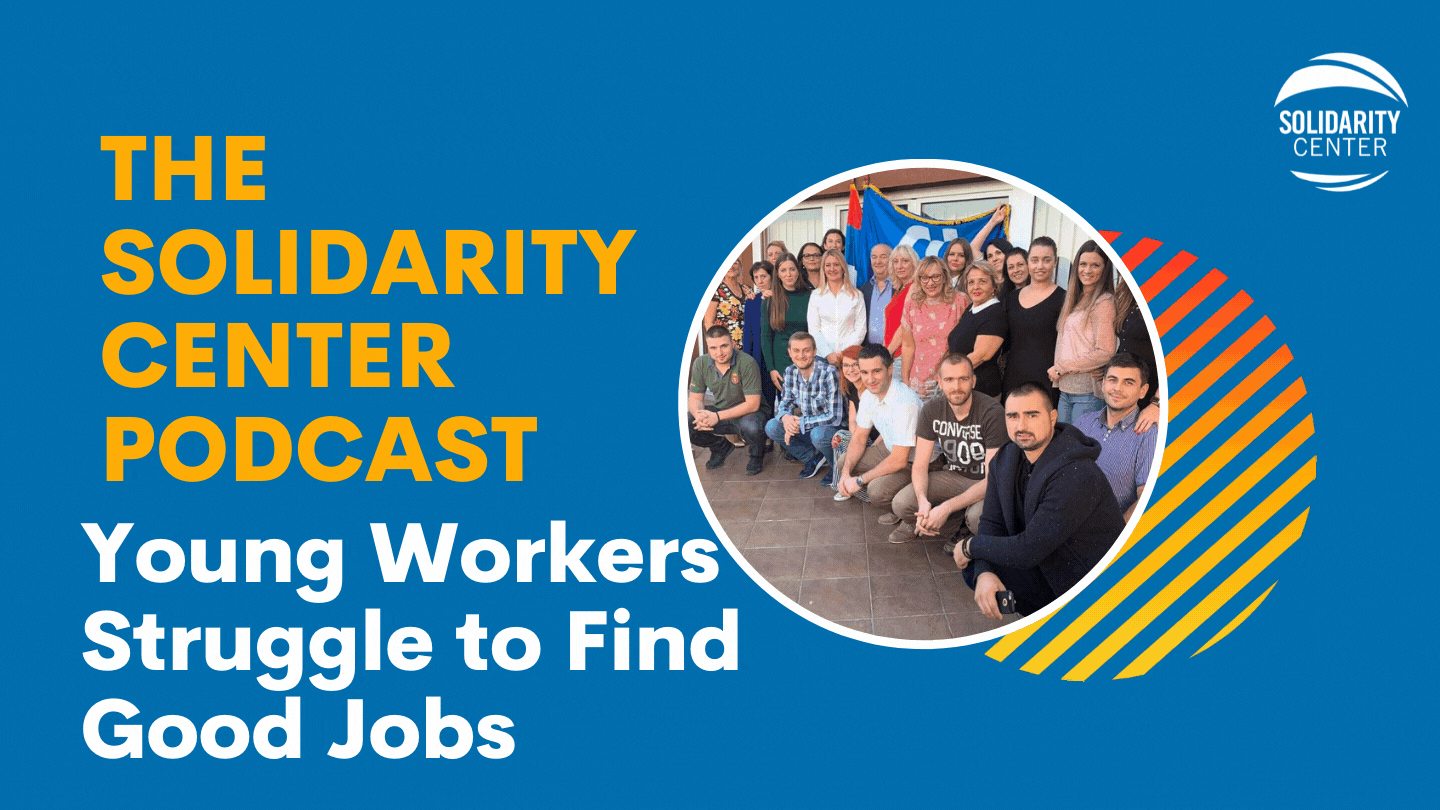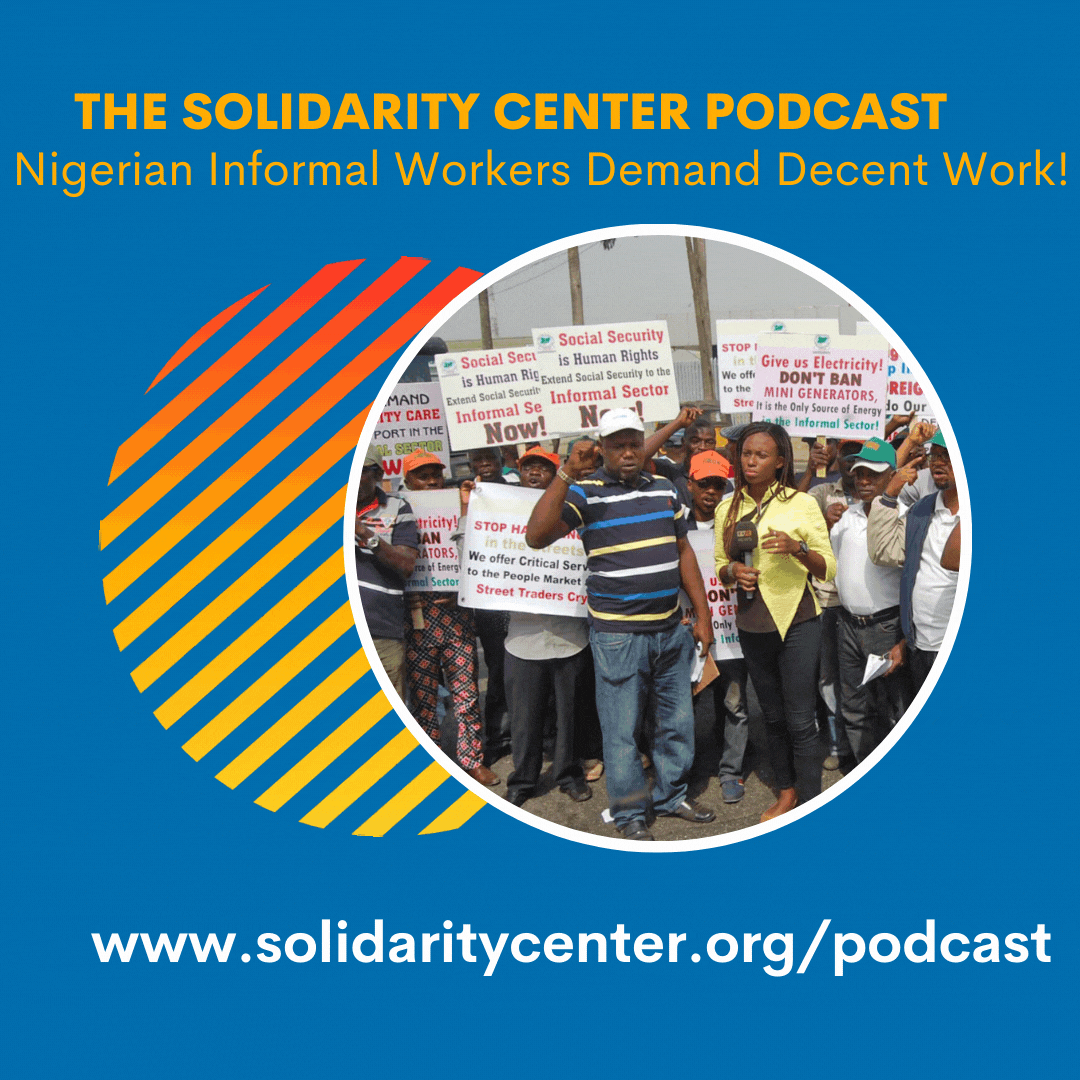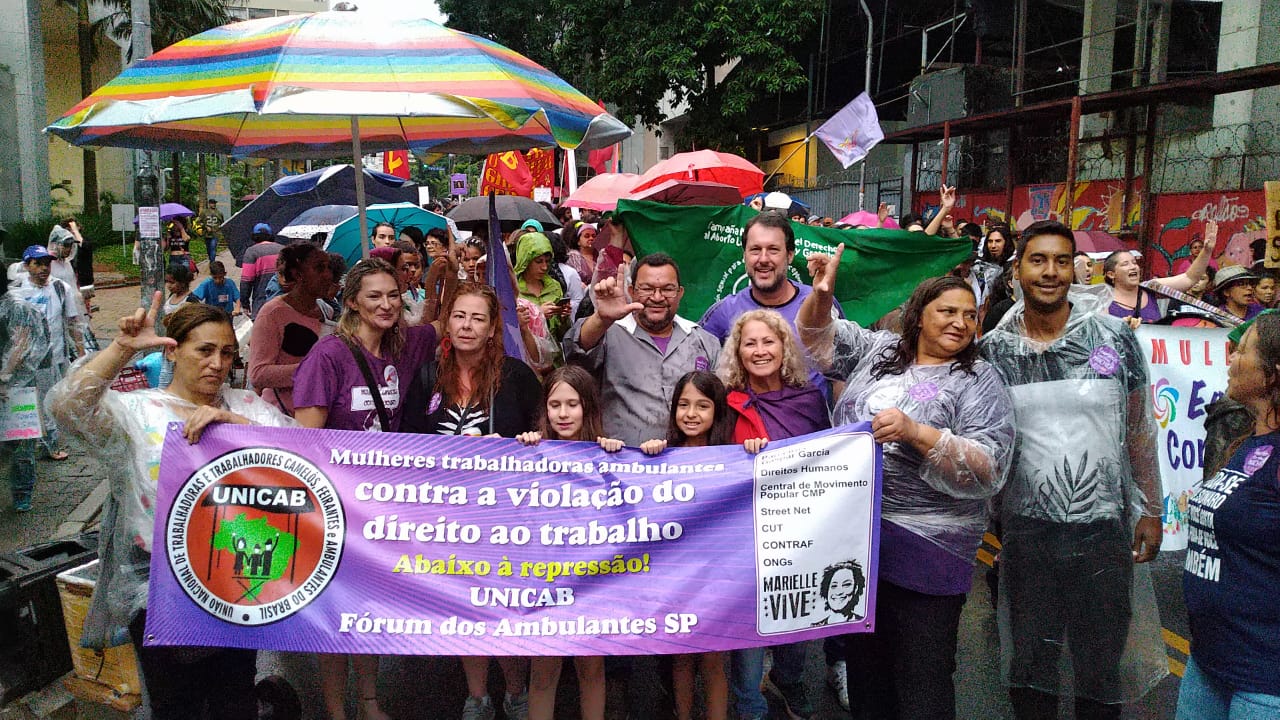Around the world, young people with few job options are forced to take whatever work they can find, no matter how low the pay or insecure the work. Many sign on with platform-based jobs to get by. Others leave their country with the hope of finding decent, secure work...
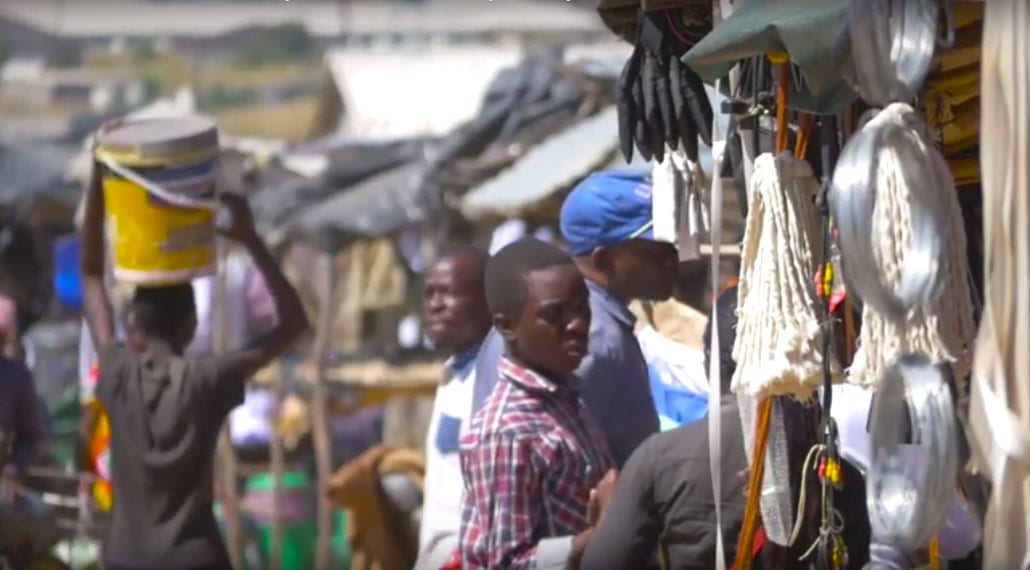
The Solidarity Center assists workers in the informal economy, such as market vendors in Zimbabwe, come together to assert their rights and raise living standards. Credit: ZCIEA
Some 2 billion people work in the informal sector as domestic workers, taxi drivers, and street vendors, many of them women workers. Informal economy work now comprises the majority of jobs in many countries and is increasing worldwide. Although informal economy workers can create up to half of a country’s gross national product, most have no access to health care, sick leave or support when they lose their jobs, and they have little power to advocate for living wages and safe and secure work.
The Solidarity Center is part of a broad-based movement in dozens of countries to help workers in the informal economy come together to assert their rights and raise living standards. For instance, three affiliates of the Central Organization of Trade Unions-Kenya (COTU-K), a Solidarity Center partner, signed agreements with informal worker associations to unionize the workers, enabling them to access to the country’s legal protections for formal-sector employees.
Find out more about informal workers gaining power by joining together in unions and worker associations in this Solidarity Center-supported publication, Informal Workers and Collective Action: A Global Perspective.
Podcast: Nigerian Informal Workers Demand Decent Work
Worldwide, 2 billion workers perform essential work selling goods in street markets, driving taxis or cleaning homes. The vast majority of these jobs are low wage, with no security and no paid sick leave or health care. In Nigeria, where more than 80 percent of the...
Brazil Street Vendors Seek a Future of Decent Work, Respect
Millions of street vendors worldwide lost their livelihoods nearly overnight during the pandemic, unable to sell in open markets during lockdowns or unwilling to risk their health to do so. But street vendors in Brazil, through the National Union of Street Vendors...
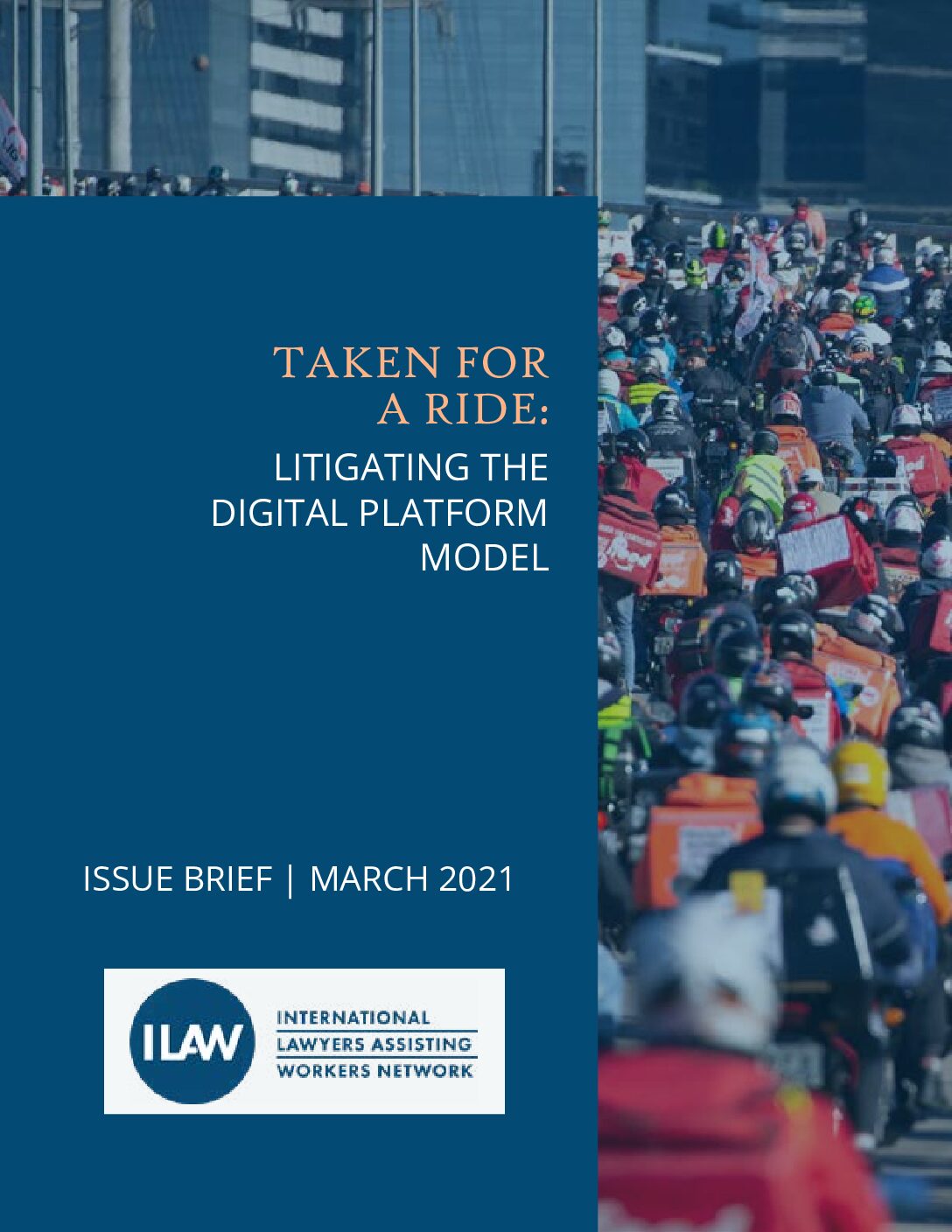
Taken for a Ride: Litigating the Digital Platform Model
This report attempts to provide comparative analysis on the litigation taking place around the world against digital platforms such as Uber, Foodora, Deliveroo and many others. Download it in English or Spanish.
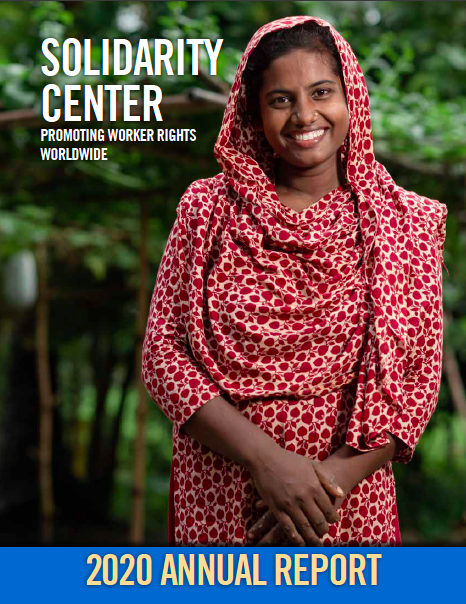
2020 Annual Report
Download here.
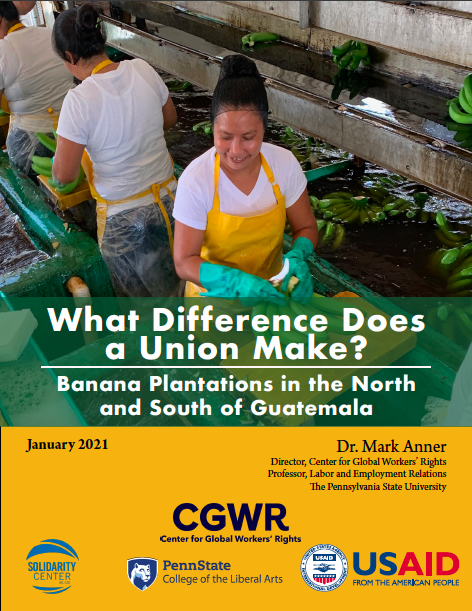
What Difference Does a Union Make? Banana Plantations in the North and South of Guatemala
Guatemalan banana workers without a union work longer hours and earn less than half than of those who are unionized, and report more cases of verbal and physical abuse. Download in English. Download in Spanish.

Made for this Moment: How ILO Convention 190 Addresses Gender-Based Violence and Harassment in the World of Work During the COVID-19 Pandemic and Beyond
This report highlights how C190, the first global treaty that recognizes the fundamental right to work free from gender-based violence and harassment (GBVH), addresses GBVH in the world of work and identifies concrete steps to address it. Read the full report here in...
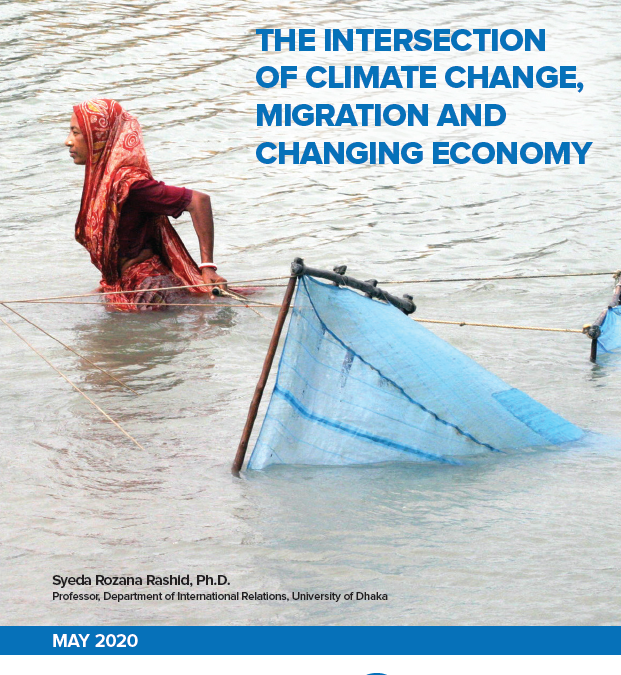
REPORT: CLIMATE CHANGE IN BANGLADESH DRIVES WORKER VULNERABILITY, POVERTY
This report, The Intersection of Climate Change, Migration and Changing Economy, explores the links among climate change, economic activities and migration in the coastal areas of Khulna and Jashore, Bangladesh, demonstrating its impact on the availability of decent...
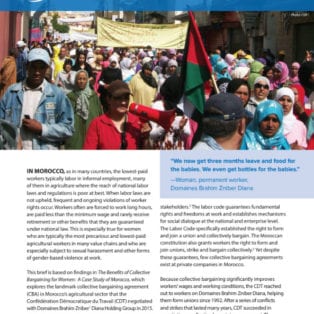
The Benefits of Collective Bargaining for Women Workers in Morocco
Download in English. Download in Arabic. This report was made possible through the generous support of the Ford Foundation.

